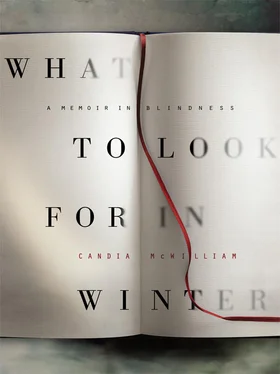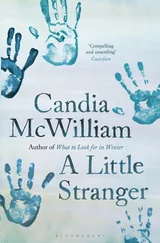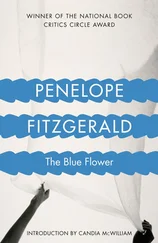The life is very simple and tranquil. Yesterday, before lunch, I walked in the garden with Lady Rosamund, who is not ‘out’, and doesn’t dine at table, though she is a very pretty little pink and white creature of 17; & in the p.m. Lady P. showed me her boudoir which she is ‘doing up’, with old china & c.; and then took me to drive in her phaeton, through some lovely Devonshire lanes. In the evening we had a ‘ballet’; i.e. the little girls, out of the schoolroom, came down into the gallery with their governess and danced cachuckas, minuets & c. with the utmost docility and modesty, while we sat about and applauded.
Today is bad weather, and I am sitting alone in a big cold library, of totally unread books, waiting for Lord Portsmouth, who has offered to take me out & show me his stable & kennels (famous ones), to turn up. I shall try & get away tomorrow, which is a Saturday as I don’t think I could stick out a Sunday here…it may interest you [to] know, as a piece of local color that, though there are six or seven resident flunkies here, I have been trying in vain, for the last half hour, to get the expiring fire refreshed. Two or three of them have been in to look at it — but it appears to be no one’s business to bring in coals…
I have come to my room to dress for dinner in obedience to the bell, which is just being tolled. A footman in blue and silver has just come in to ‘put out’ my things — he almost poured out the quantum of water I am to wash by. The visit to the stables was deferred till after lunch, when I went the rounds with Lord P. and a couple of men who were staying here — forty in numbers, horses, mostly hunters & a wonderful pack of foxhounds — lodged like superior mechanics.
Although I have a soft spot for the 5th Earl, who is good-looking and sounds decent, one can feel that Henry James wasn’t perhaps putting his back into those so beautifully maintained dumb animals. During these blind years, I’ve been playing all sorts of silly games along the lines of who would you rather among the great writers be stuck in a boat with, and at first I thought the answer was a toss-up between George Eliot and Proust. But now I think, if we’re ruthless and it had to be one, let’s have Henry James. We can hide his correspondents Robert Louis Stevenson and Turgenev in his greatcoat pockets.
If my own is a story of uprooting and its effects, so is that of my first husband, about whom I shall take the course of writing as little as he would wish. We married in love and in good faith and are the parents of two beloved children. We come high in one another’s lives and have only kind thoughts for one another. We are both of a romantic temperament, both shy and both with an instinct to place trust in a metaphysical belief system that includes God. Quentin is a confirmed Christian. When I stand next to him in church, which I do quite frequently, I feel my own shaky faith strengthened by the directness of his.
I did not become confirmed when the opportunity to be so arrived at boarding school, taking the pi line that most of the other girls were doing it to please their parents and to get a nice string of pearls or a pretty diamond cross. I should have become confirmed then, because it would have so pleased my McWilliam grandmother. Quentin’s story of deracination and its redress is geographically (and in other ways) more dramatic than my own and I shall tell it sparely. Born in Spain, he was a young child in Australia. He loves the sea and ships. At a very tender age, he was sent to prep school at Farleigh House School. His grandfather, sensing after the war that big houses might be doomed, had leased his own to this institution, a primarily Roman Catholic prep school, and moved to Kenya. Thus Quentin was at school among boys of a different religious denomination; he had an Australian accent and was being schooled in a house that was, actually, his own. While he keeps many friends from those days, it was greatly to his satisfaction when the lease expired in 1983 to be able to restore and to re-enter his ancestors’ home. The school relocated to Red Rice in Andover. There is now no sense to the house that it ever was anything but a happy family home. People who were at the school are astonished by the difference.
One way of being evasive in a memoir or whatever it is that my mouth is making in an attempt to get my eyes to open, is to take refuge, as Anthony Powell so gruesomely enjoyably and teasingly does in his own memoirs, in genealogy. I shan’t do that. Histories of the Wallop family may be found elsewhere.
Perhaps the most humanly relevant fact about the Wallop family is that they are known as the Red Earls on account of the heir more often than not having ruby-red hair. Our son Oliver, who was named for Cromwell — one of the Wallops was a regicide — was born on 22 December 1981. His names are also Henry Rufus. I got to choose this third quite unrejectable name. As soon as a little bit of the baby’s head was visible, Quentin was convinced that he would be a boy, and a boy indeed he was, with a fiery head, at birth and ever since, of scarlet hair. It was a hard snowy winter and we spent Christmas at Basingstoke District Hospital, dizzy with joy and completely ignorant of how to feed our huge son. The NHS gave us a knitted Santa which is still in the day nursery at Farleigh. It was the middle of the shooting season, so Quentin would be busy in the day and then slide in his Land Rover back to me in the hospital with big dishes of salami that he had bought at I Camisa in Soho and sliced paper thin. Other mothers who gave birth in December 1981 may remember this handsome man handing around plates of cured Italian meats in his delight at being a father, and it was indeed to be a father that Quentin himself was born. His story of deracination makes for an absolute fix on steadiness as a parent.
Our honeymoon took place in Mexico. I had forgotten to get an American visa and even Mr Potts couldn’t swing it. This time, the crazy luck came from the fact that Papa was very briefly a Minister of State for Defence under Mrs Thatcher, who sacked him I think for being too left-wing; ‘wet’ was the word of the day. Phone calls were made and on our stopover in Los Angeles I was guarded, including on ‘comfort visits’, by armed police. Quentin is an experienced, hardy, courageous, adventurous and curious traveller. He was completely thrown to discover that he had married someone who turned to jelly at the thought of arranging a train trip from Basingstoke to London. He says that I offered to do the washing-up on our first long-haul flight together. In those days there was a sort of drawing room in the forehead of very fat aeroplanes, which I used to like. It felt solid. It was like being a citizen of Celesteville, Babar’s immaculately rational and so French city, all curves and absence of threat, while sitting up in the top of those fat jumbos.
We arrived in Mexico City in the middle of the night. I sent my sparkly pink and grey going-away outfit to the dry cleaner and, true to form, it returned doll-sized the next day. It made for a good grounding that I had read Under the Volcano so many times
But I was completely unprepared to conceive of the minds that could build the pyramids of unmortared stone that we climbed in the Yucatan. The solidity of such abstraction, the mathematical judgement and forethought required to cut each constituent stone just so and to cut it but with another stone, that obsidian axe, all this not only overwhelmed but terrified me. I found myself thinking about their thought and failing to conceive of how even to begin to think about it. It argued mental processes of such developed abstraction, whose result was transformed into something solid, and that felt deathly itself. There were no merciful flaws, was no tolerance of looseness.
Читать дальше











